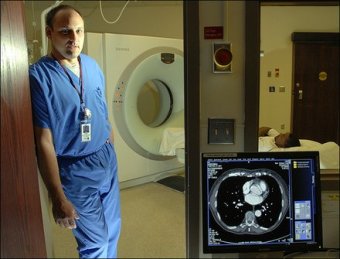 Are You A Physician Who Needs Help With Your Non-clinical Career Search?
Are You A Physician Who Needs Help With Your Non-clinical Career Search?
Have you been thinking about transitioning for a while and are you considering hiring a coach to help you?
Here’s some advice for choosing the right person to help you.
Know who’s giving the advice: Make sure the person you’re hiring is the actual person doing the coaching rather than a salesperson who has staff doing the actual coaching. By the same token, stay away from resume mills that have staff do all the client work.
It is often better to work with someone who has experience: Consider that “certified” coaches often have very little actual experience helping people find jobs. Many have tried to break into coaching/resume work by taking an inexpensive certification class that gives them “magic” initials after their name. The certification isn’t the problem, it’s that these people have little prior job search or coaching experience.
Choosing a physician versus a non-physician: A coach with a physician background has the unique perspective of what works for another physician and usually understands the challenges unique to a non-clinical transition. Most physician coaches do a good job helping other physicians translate their CV’s to good non-clinical resumes. If the prospective coach is not a doctor, make sure he or she has worked with doctors before and has successfully helped them find the particular jobs and companies that work well with doctors.
Understand what “success rate” means: Success is often defined by job placement but a coach is not responsible for placing someone into a job. A coach should be guiding and leading you towards the right job and situation and connecting you with people who may further help you in your goals. Remember that you are ultimately responsible for your success, even if you are working with a recruiter who does place individuals into jobs. Instead of evaluating a coach on job placement, talk to the prospective coach about his or her past experience with others. Asking for references is another good way to help you determine how a coach works with other clients.
Make sure this person “gets” you: Explain your career issues, past work, individual work/life balance needs and geographic restrictions during an initial call. Ask questions of your prospective coach to understand how he or she will help you overcome your specific barriers and work within your situation to fulfill your needs.
Remember that cheap isn’t always quality: Quality coaches charge more. Coaching is a personal service, and you get what you pay for here. A good rule of thumb is to plan on spending more than a few thousand dollars but less than $10,000 on coaching. Remember that physician career transition is very difficult (otherwise, why would you be hiring someone to help you in the first place?) so paying this sort of money is usually justified.
At some point, you’ve got to just make a decision: As you weed through opposing opinions, remember that if you ask ten people about your resume, you’ll get ten different opinions, often conflicting. Open your mind to alternative approaches and determine which opinion seems right for your specific situation.
Ultimately, it’s important to remember to go with your gut: Your gut is usually a pretty good judge. Make sure you feel comfortable with this person from the onset. Usually you’ll get a sense of that from the initial phone call and e-mails as you ask this person questions about their services.
In the recent years, "coaching" has become a fad. That's unfortunate because it gives coaching somewhat of a trendy feel and can be seen from a slimy/slick perspective by others. I appreciate that Atul Gawande, such a master of words and communication, has given the world a thoughtful view of coaching. His article can be viewed here: http://www.newyorker.com/reporting/2011/10/03/111003fa_fact_gawande
A word of disclosure – I’ve served as a coach for physicians looking to transition to a non-clinical career for the past eight years. However, I’m not the only one on FreelanceMD who provides this valuable service. In addition, there are others out there (physicians and otherwise) who also coach doctors looking to make a transition.
 Most physicians are familiar with the acronym CVP, which stands for Central Venous Pressure. As an emergency physician I can’t actually remember the last time I measured a patient’s CVP. Unless you’re dealing with seriously ill patients in the ICU, most other physicians aren’t measuring the CVP either.
Most physicians are familiar with the acronym CVP, which stands for Central Venous Pressure. As an emergency physician I can’t actually remember the last time I measured a patient’s CVP. Unless you’re dealing with seriously ill patients in the ICU, most other physicians aren’t measuring the CVP either. Email This Article tagged:
Email This Article tagged:  Leadership,
Leadership,  happiness,
happiness,  purpose,
purpose,  success,
success,  transition,
transition,  values,
values,  vision |
vision |  Oct 18, 1:22 PM
Oct 18, 1:22 PM 








